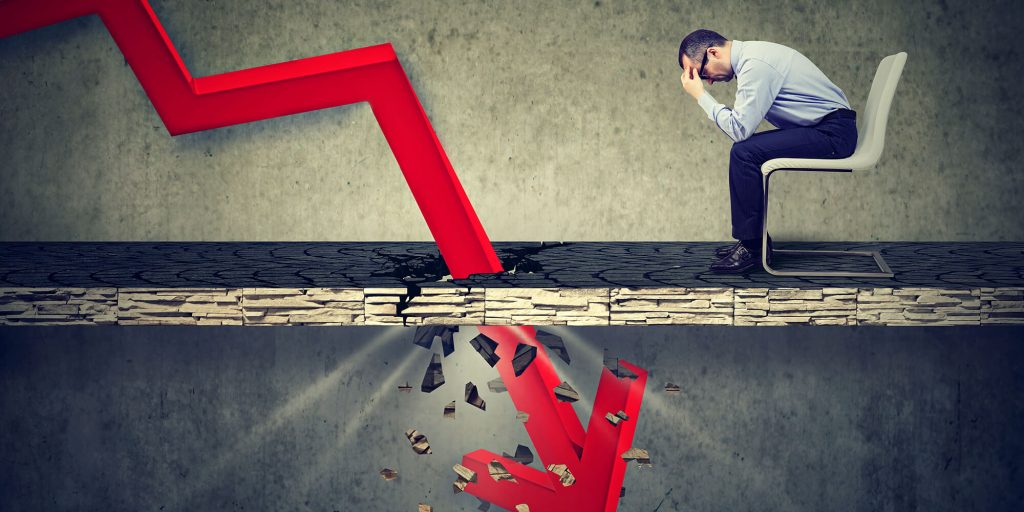Advertisement
Market falls don’t come along often, but when they do they could affect our pensions and fund investments, and rattle us into thinking we need to preserve our money in cash-based investments – at least until it’s all over.
But experts have warned time and again that this is the wrong thing to do, even if you can see a crash coming.
Here we speak to Rory Kutisker-Jacobson, portfolio manager at Allan Gray, to identify the warning signs of a bear market (when stock prices are falling), and we ask him how we should react.
What are the warning signs of a stock market crash?
Advertisement
Rory Kutisker-Jacobson (RK-J): The common warning signs that indicate that greater caution is warranted are excess exuberance on the part of other investors, rapidly rising prices in one or more asset classes, and share prices rising way beyond what the underlying fundamentals suggest their true value is.

A crash may be triggered by an unpredictable external event or simply by sentiment changing for some unknown exogenous reason. In practice, it is hard to accurately predict the timing and the length and extent of a crash. Rather than attempting this futile exercise, it is better to take a consistent and rational approach to your investments, including making sure your portfolio is well diversified.
If you see a crash coming, should you invest in cash?
RK-J: It is particularly important not to be reactionary – selling after the market has crashed or buying after the market has rallied.
In most cases you want to do the opposite. In his 1986 letter to shareholders, [American business magnate and investor] Warren Buffett famously spoke of being fearful when others are greedy, and greedy when others are fearful. These words are as true today as they were then.
When did we last see a major crash and what was the recovery like?
RK-J: At midnight on 26 March 2020, South Africa went under our first COVID-19-related lockdown. At that point, no one had a clear idea of how long the virus would be with us, nor of the social, human and economic impact.
Fear and uncertainty were heightened, and this reflected in our equity market. The FTSE/JSE All Share Index (ALSI) began 2020 offering what appeared to be attractive valuations, and yet, by the end of March 2020, it had declined more than 20% as fear spread.
The market has since recovered and is testing all-time highs, reaching 69,800 in July 2021 against a low level of 38,000 in March 2020. Those who stayed invested, or were fortunate enough to have capital to deploy and be greedy during the crash, were healthily rewarded.
While investors may have felt better exiting the market when they did, and re-entering when optimism returned, in the end they lost out on the recovery.
Should we always invest in the stock market?
RK-J: History reveals that the asset class that has delivered the highest returns in excess of inflation over the long term is equities.
Over the last 100 years, on average, cash has given investors 1% real return and bonds 2%, while local equities have delivered 7% and global equities 5% after inflation is accounted for. The takeaway: Long-term investors need an allocation to carefully selected equities to protect and grow their wealth.
What if you can’t stomach the ups and downs?
RK-J: If capital preservation and growth are equally important to you, one way of solving this is to consider a low equity fund. Low equity funds have a maximum allocation of 40% to equities and can invest in other asset classes, including foreign assets, property, cash and bonds.
The allocation across these classes is carefully managed by professional fund managers. This includes those decisions like trying to figure out the best time to enter and exit the markets, and weighing up the opportunities offered within and across the various asset classes.
Remember that risk means that more things can happen than will happen. Given the heightened level of uncertainty prevailing in global markets, and that nobody knows for sure when or how the world will emerge from the COVID-19 crisis, we believe it is important that investors position their portfolios for a wide variety of outcomes, rather than taking a big bet on one particular scenario prevailing.




